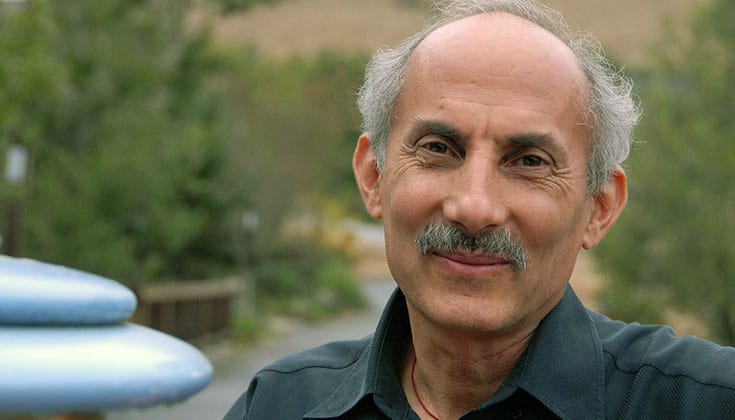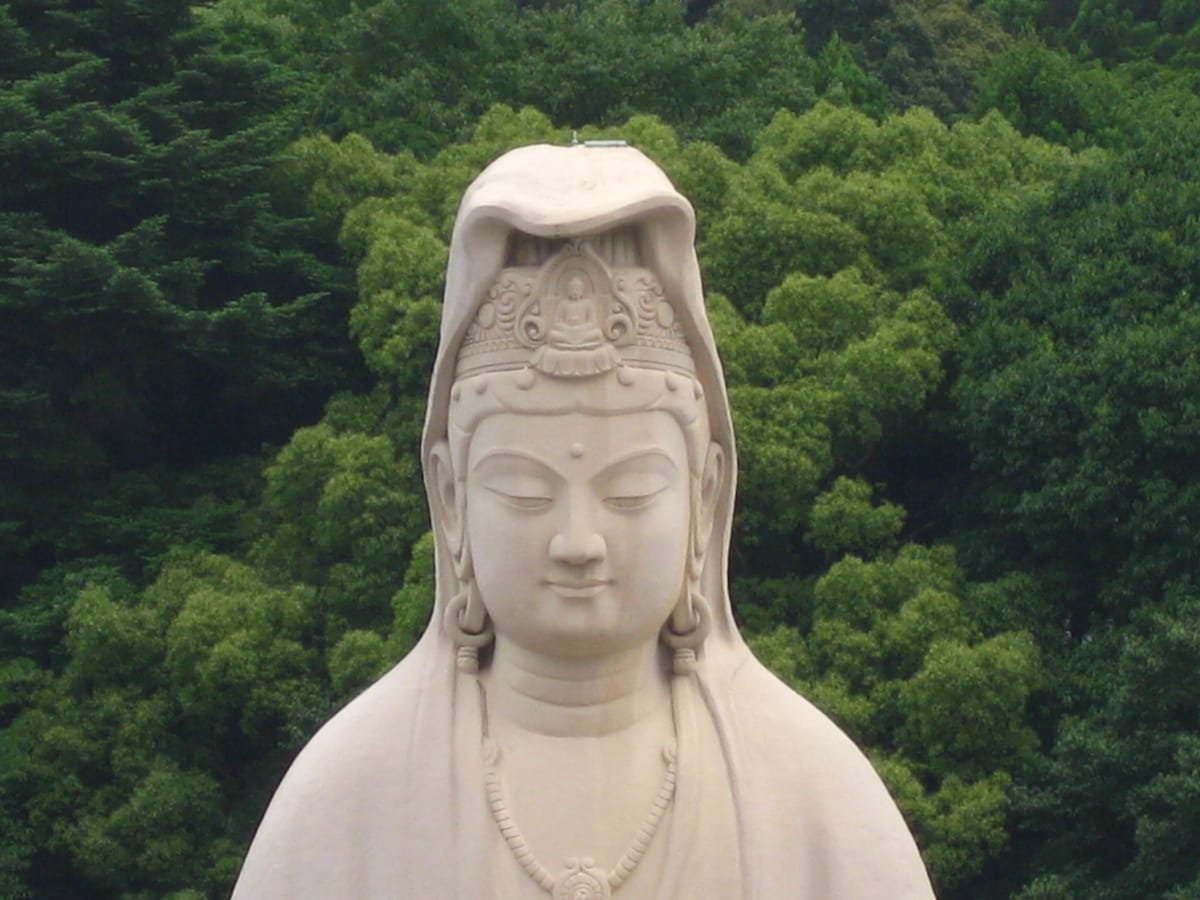When the world is seen with the eyes of a bodhisattva, there is no I and other, there is just us.
—Jack Kornfield
Jack Kornfield is one of today’s most influential spiritual teachers. As a Buddhist monk-turned-psychologist, his skilled integration of modern psychology into timeless Buddhist teachings has helped people around the world heal their hearts and minds. His unique teaching style, which includes deeply personal anecdotes, illuminates the value of Buddhist teachings for individuals today. As a founder of both the Insight Meditation Society and Spirit Rock Meditation Center, Kornfield has helped put two of America’s most important Buddhist centers on the map. Many of his teachings, conversations, and commentaries have been published in Lion’s Roar and Buddhadharma: The Practitioner’s Quarterly. Read below for select favorites and to learn about Kornfield’s life and work.
The Life of Jack Kornfield
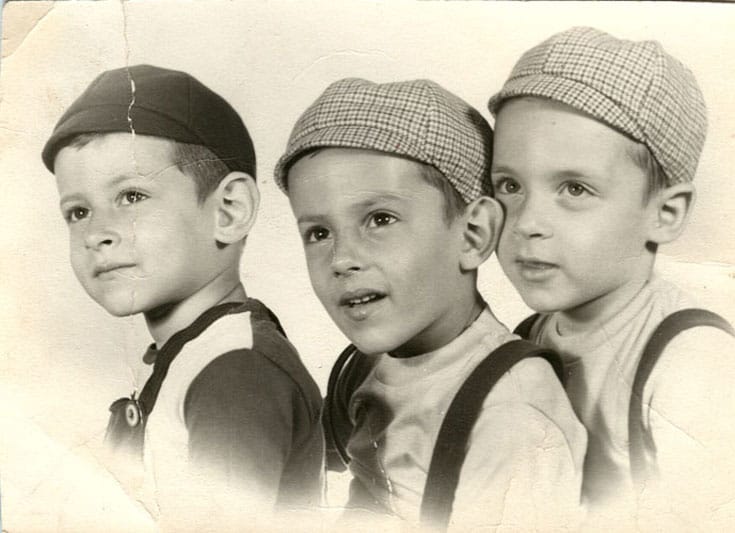
Early Life
Jack Kornfield was born July 16, 1945 as a fraternal twin to a family of four boys. Kornfield experienced difficulty early in life at the hands of his father, a “workaholic scientist,” who Kornfield has described as paranoid, violent, and abusive. “When he was most abusive,” Kornfield writes in his book No Time Like the Present, “I would run away, and my mother hid bottles behind the curtains in every room so she could reach for one to defend against his blows.” Watching his father in childhood, Kornfield became determined not to be like him, and to instead be a peacemaker.
Seeking Buddhism
Kornfield attended Dartmouth College in New Hampshire, where he majored in Asian Studies and became drawn to Buddhism. He graduated in 1967 and joined the Peace Corps in the midst of the Vietnam War, requesting to be sent to a Buddhist country. Kornfield was assigned to the Mekong River Valley in rural Thailand, working in tropical medicine.
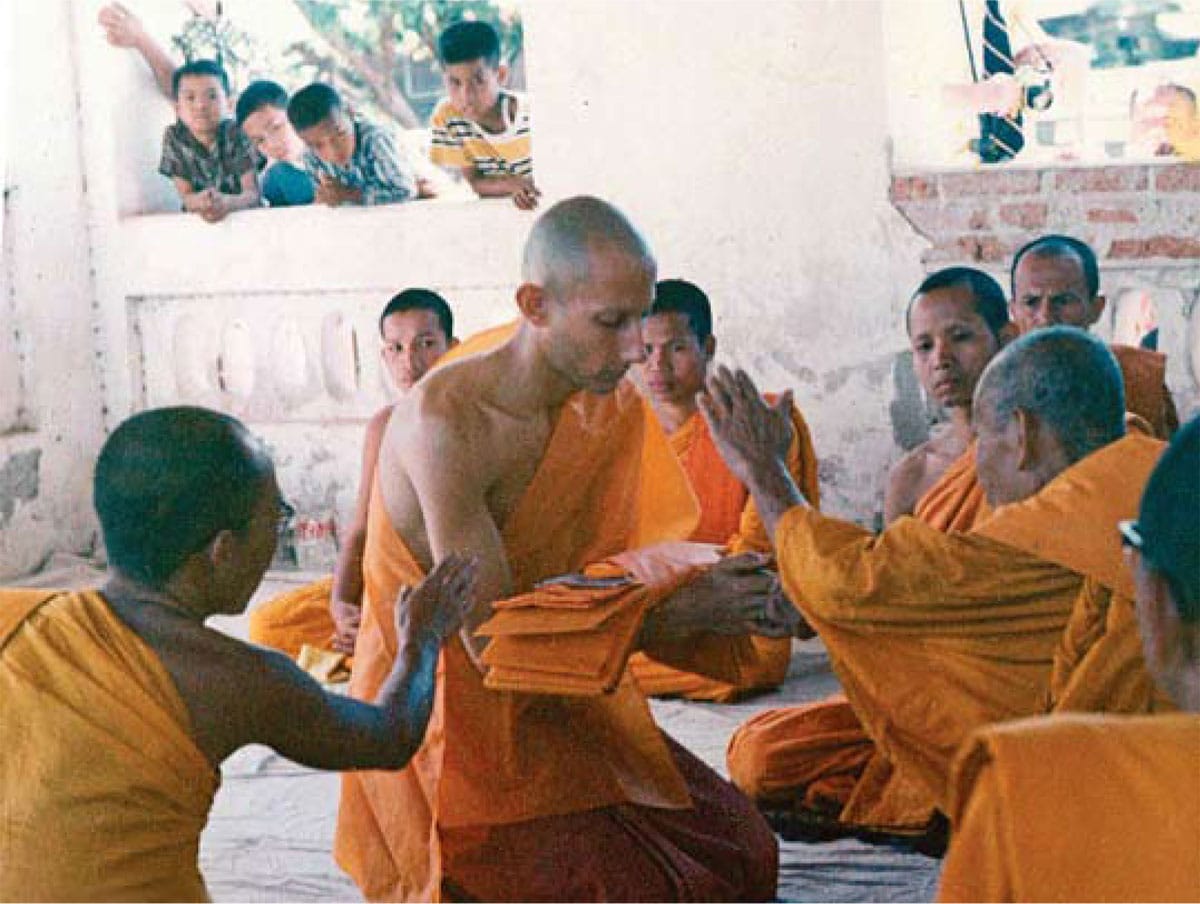
When his time with the Peace Corps was over, Kornfield decided to stay in Thailand and devote himself to the practice of Buddhism. Left with anger and grief from his difficult childhood, he wanted to see that it was possible to simply be with himself. Kornfield made his way to Ajahn Chah’s monastery, Wat Nong Pah Pong, and entered monastic life under Chah’s guidance. There, he has said, he really learned compassion. Kornfield later practiced with Mahasi Sayadaw, whose practice and teachings were quite different from Ajahn Chah’s. These two Theravada masters, Kornfield has said, were his most influential teachers.
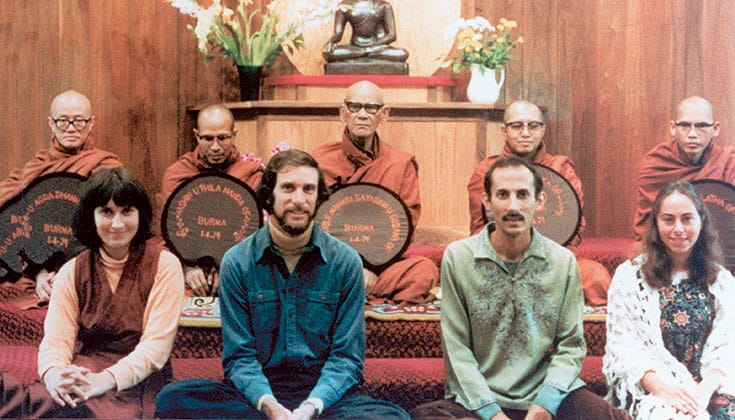
Bringing Buddhism to the West
Kornfield returned to the United States in 1972, and struggled to maintain his life as a Thai monk living at his mother’s house in Washington, D.C. As Steve Silberman writes in “Wise Heart: A profile of Jack Kornfield,” Kornfield’s refusal to handle any money and doing alms rounds in the city soon became “awkward.” His life as a monk in the West with no monastery to support him soon became unsustainable. He disrobed in an emotional ceremony at a Japanese temple on display at the Museum of Fine Arts in Boston with the help of a museum curator.
In 1974, Kornfield became a founding faculty member at Naropa University. At a party, he met Chögyam Trungpa Rinpoche, who asked Kornfield to teach a Vipassana course at his new school’s first summer session. Kornfield began teaching Vipassana alongside Joseph Goldstein, and the two formed a deep bond. Buddhist teacher Sharon Salzberg was also teaching at Naropa at the time, and the three teachers began plans for their own center for intensive Buddhist practice.
IMS and Spirit Rock
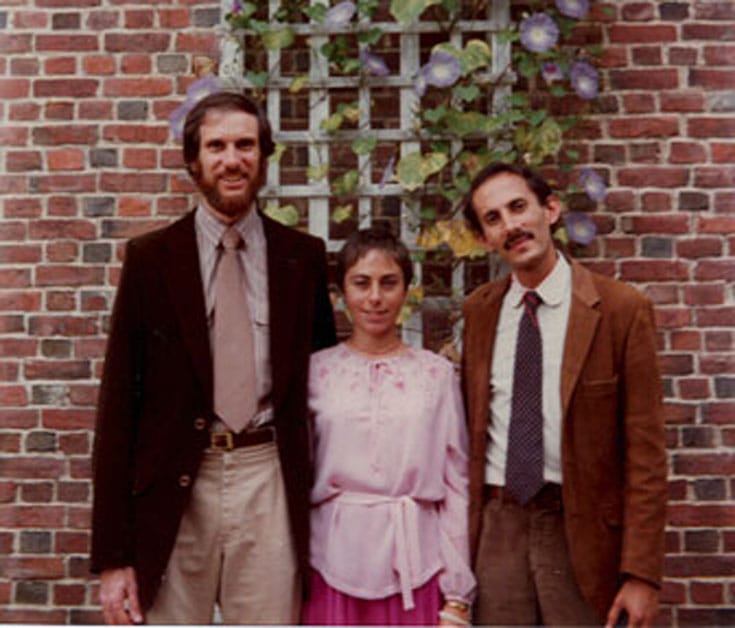
In 1974, Kornfield, Salzberg, Goldstein, and Jacqueline Mandell-Schwartz purchased a former Catholic monastery on eighty acres of land in Barre, Massachusetts, and founded the Insight Meditation Society (IMS), which has gone on to become on of American Buddhism’s most important institutions. While teaching at IMS, Kornfield began to draw insights from Western psychology as an accompaniment to Buddhist teachings he was. In 1977, he earned a Ph.D. in clinical psychology from Saybrook University.
IMS first held meditation retreats on the West Coast in 1974, and the West Coast sangha quickly began to grow. Three years later, in 1977, Kornfield, alongside Sylvia Boorstein, Anna Douglas, Howard Cohn, and James Baraz, founded the Dharma Foundation, with the intent of sponsoring more West Coast retreats and Monday-night sitting groups. Kornfield met Liana Chenoweth, an artist, in 1978, and the two fell in love. The couple moved to the Bay Area, and were married in 1984. Their daughter Caroline was born that fall. Kornfield was giving Monday-night talks around Marin County at this time, and the community continued to grow, while in search of a permanent home.
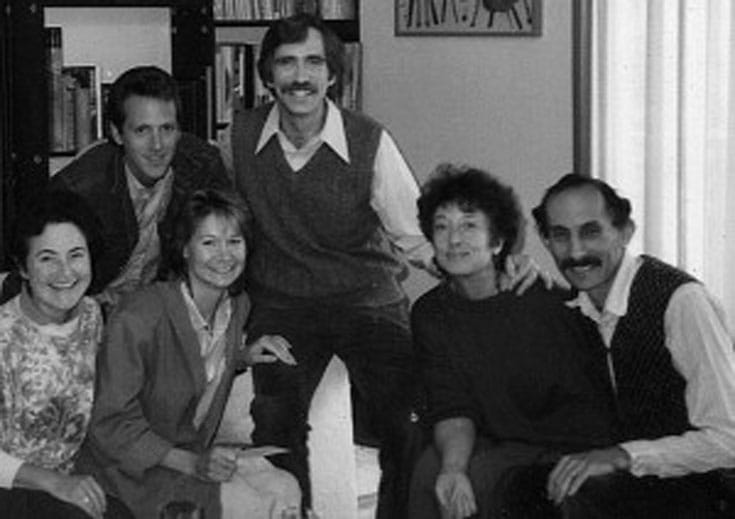
In 1988, a 408-acre piece of land in the San Geronimo Valley became available, and with the help of an anonymous donor, the West Coast sangha purchased it for one million dollars. This land became the home of Spirit Rock, now one of America’s most popular meditation and retreat centers. Over the next ten years, Spirit Rock’s Vision Committee worked to build meditation halls, administrative offices, caretaker’s quarters, and a kitchen and dining hall. The residential retreat center officially opened in 1998. Since its opening, Spirit Rock has hosted the likes of His Holiness the Dalai Lama, Thich Nhat Hanh, and Alice Walker. Kornfield outlines the story and challenges of bringing Spirit Rock to life in his Summer 2007 Buddhadharma: The Practitioner’s Quarterly article “This Fantastic, Unfolding Experiment.” “Spirit Rock is a mandala that includes the practice of intensive retreats and the ongoing embodiment and integration of dharma in all of the dimensions of one’s life,” he writes. “Our task is to preserve the practices of mindfulness, loving-kindness, compassion, ethics, and virtuous conduct.”
Kornfield Today
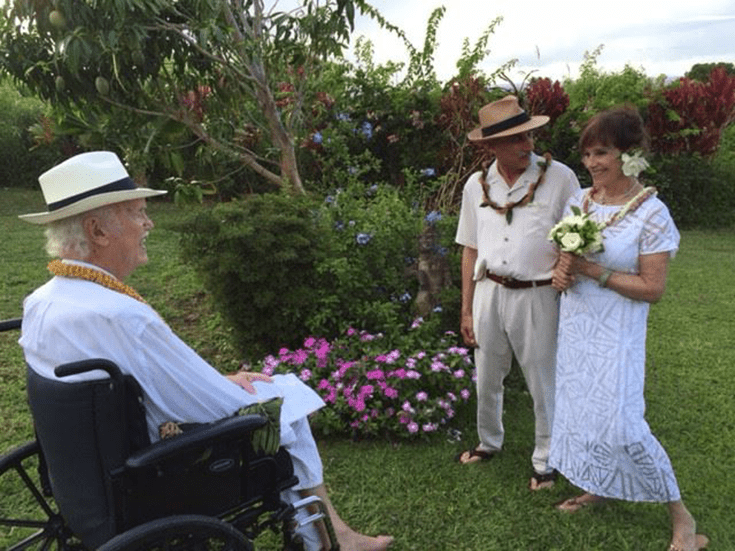
After almost 30 years of marriage, Kornfield and his wife, Liana, divorced, a subject Kornfield has touched on in many of his dharma talks since. In 2016, he married fellow dharma teacher, Trudy Goodman, in Maui, Hawaii. Kornfield continues to lead talks and retreats at Spirit Rock, and around the world. He has authored more than a dozen books that have been translated into 20 languages and sold over a million copies. Kornfield maintains an active podcast of dharma talks and a social-media presence with a large following. His most recent book, No Time Like The Present, came out in May 2017. Kornfield has written for a number of publications, including Buddhadharma: The Practitioner’s Quarterly, Lion’s Roar, Tricycle, and Mindful, and continues to inspire a worldwide audience with his skillful integration of Western psychology into Buddhist teachings.
Quotes from Jack Kornfield
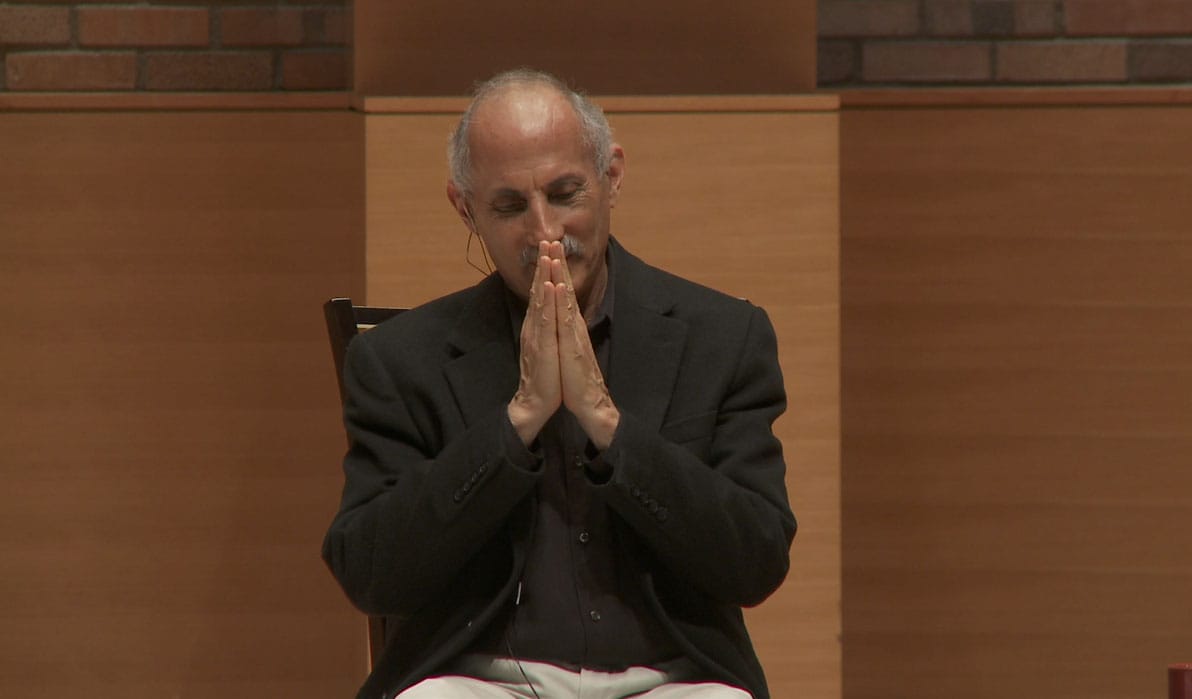
You are consciousness incarnated in the human body, but not limited by it. Consciousness is the clear space of knowing, as vast as the open sky. Rest in consciousness, in loving awareness. Let vastness be your home.
It’s not within anyone’s power to save the world, but it is within your power to add whatever you can with a loving and caring and peaceful heart.
The very diversity of views, schools, and teachings is Buddhism’s health, keeping it vital and true.
When we honor the gate of suffering, what arises is the wondrous power of compassion.
Gratitude is a gracious acknowledgement of all that sustains us, a bow to our blessings, great and small. Gratitude is the confidence in life itself. In it, we feel how the same forces that pushes grass through cracks in the sidewalk invigorates our own life.
Jack Kornfield’s teachings on meditation
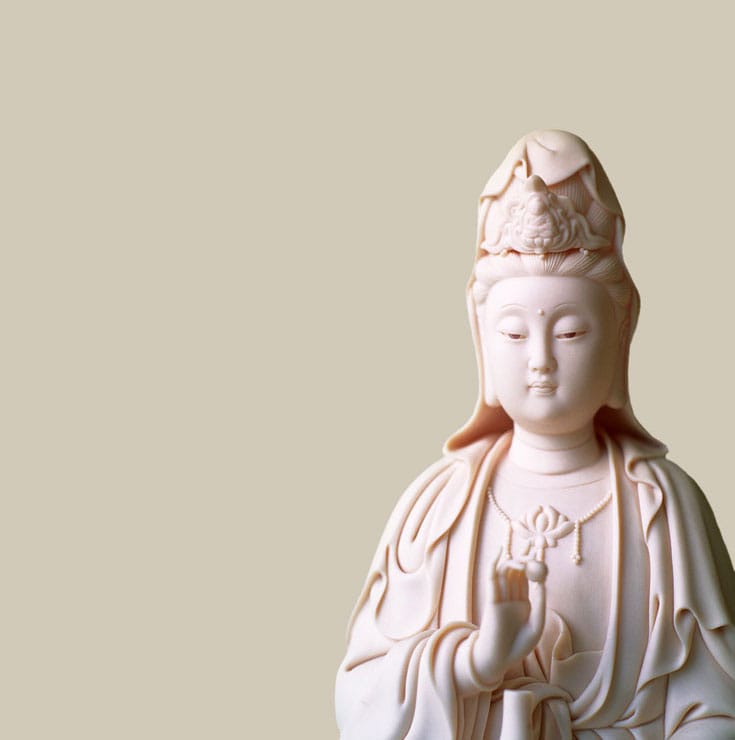
How to Do Metta
“Think, ‘May all beings far and near, all beings young and old, beings in every direction, be held in great loving-kindness. May they be safe and protected. May they be healthy and strong. May they be truly happy.’”
Jack Kornfield on beginning this time-honored, heart-opening practice.
Develop a Mind Like Sky
“Develop a mind that is vast like space, where experiences both pleasant and unpleasant can appear and disappear without conflict, struggle or harm. Rest in a mind like vast sky.”
Meditation teacher Jack Kornfield explains the why and how of developing wise attention, or open awareness.

Jack Kornfield’s teachings on Buddhist practice
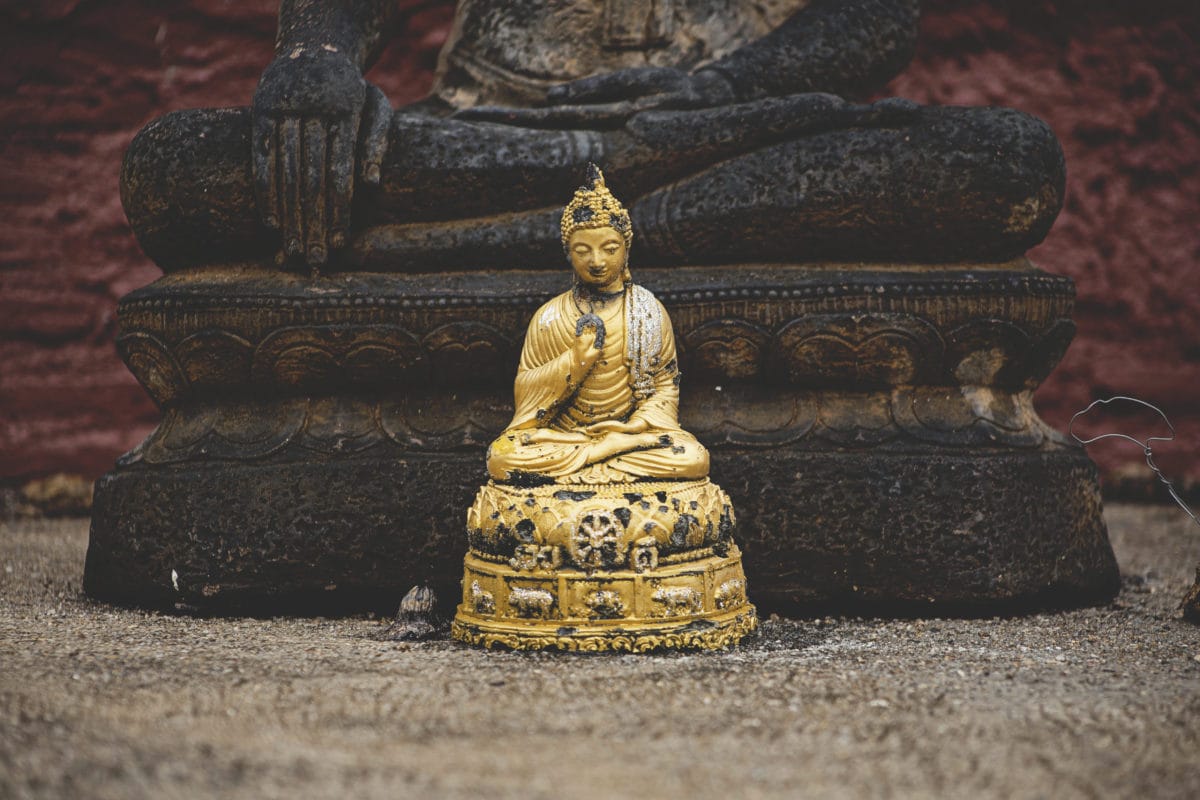

Buddhism’s Call to Action
“As dharma practitioners, the first task is to make your own heart a zone of peace. Instead of becoming entangled in the pain or cynicism that exists externally, you need to face your own fear, your own sufferings, and transform them into compassion. Only then can you offer genuine help to the outside world.”
Jack Kornfield on the importance of contributing to activism with Buddhist practice and wisdom.
The Buddha is Still Teaching
“Dharma means both truth and the path to discover the truth. The dharma is kept alive by all who follow the path.”
The true Buddha isn’t limited to the body or mind of a particular person who lived long ago. He is present today, says Jack Kornfield, in teachers pointing the way to a timeless freedom.
Doing the Buddha’s Practice
“We pay attention with respect and interest, not in order to manipulate, but to understand what is true. And seeing what is true, the heart becomes free.”
Mindfulness/awareness was the meditation the Buddha practiced and taught—it was his basic prescription for human suffering. Looking at life with an open and nonjudgmental attention, we see our confusion and develop insight. This is the basis of all Buddhist practice and the key to liberation. Jack Kornfield explains.






Jack Kornfield’s commentaries on society
Practicing the Dharma in Uncertain Times
“This is your world. Plant seeds of goodness and water them everywhere.
During times of pain and confusion, we arrive at the perfect place to deepen our practice of awakening. Following the results of the US presidential election, Jack Kornfield shares how to practice the dharma in these uncertain times.
Now Is The Time to Stand Up
“With peacefulness and mutual respect, our Buddhist communities can become centers of protection and vision.
Jack follows “Practicing the Dharma Uncertain Times” with a second, more action-oriented installment of post-election guidance and encouragement.






Jack Kornfield in conversation
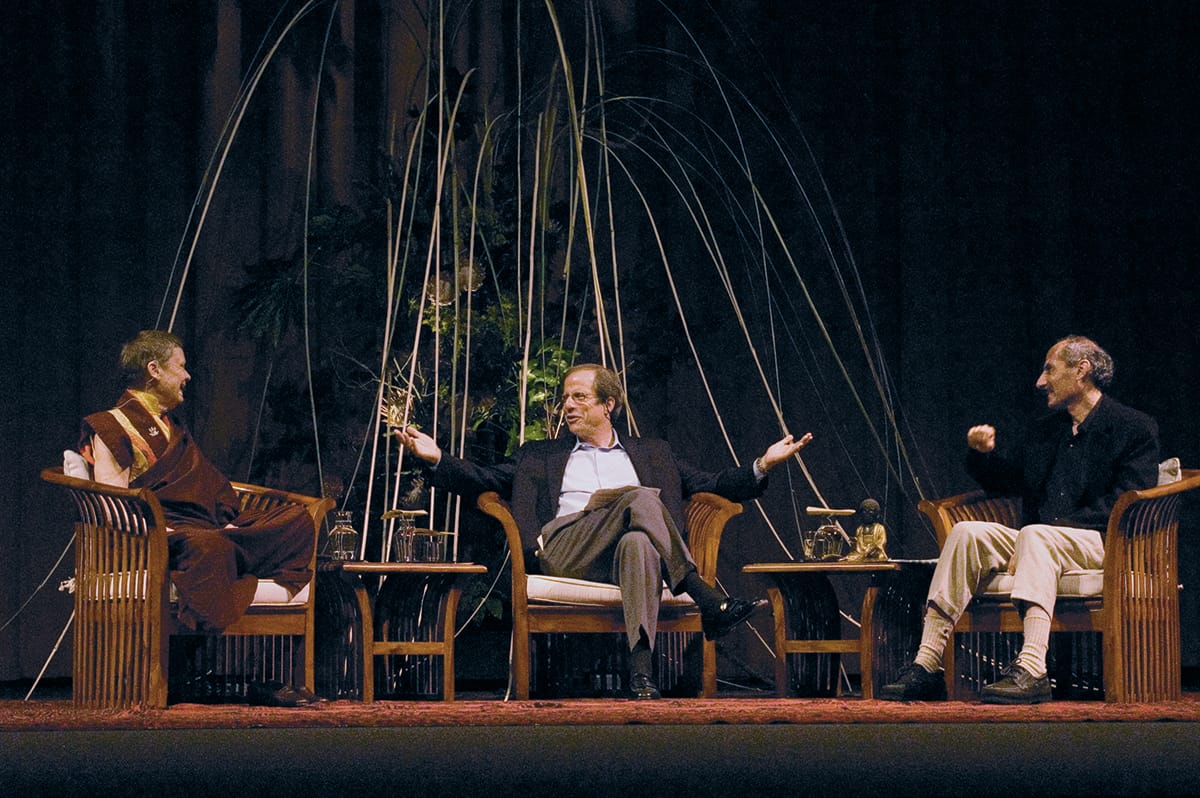

Pema Chödrön and Jack Kornfield talk “The Wondrous Path of Difficulties”
“Jack Kornfield: One of the great blessings I see in people who have committed themselves to a Buddhist practice is that their capacity for both joy and for dealing with the sorrows and the pain of life grows. Practice opens the door for both.”
A conversation with Pema Chödrön and Jack Kornfield, moderated by Michael Krasny, about the everyday difficulties that provoke us, reveal our habitual patterns, and ultimately transform us.
What Makes Us Free?
Jack Kornfield: “When the texts begin, “Oh nobly born” or “You are the sons and daughters of the awakened ones,” they help us remember who we are. They point to our capacity for joy, well-being, and freedom. That motivates and strengthens our practice.”
Insight. Loving-kindness. Cultivating what’s wholesome. And making them real in our lives every day. These are what make us free, say Insight Meditation teachers Jack Kornfield and Joseph Goldstein, in a conversation at California’s Spirit Rock Meditation Center, moderated by Michelle Latvala.
Forum on Psychology and Buddhism
Jack Kornfield: “Yes, Buddhism is complete and it’s wonderful. But there are also a variety of very helpful, skillful means coming from Western psychology that complement what someone can get from a given teacher and a given practice.”
Jack Kornfield, Judy Lief, and Harvey Aronson discuss what psychology and Buddhism share, and how they differ.
Jack Kornfield: “It’s not so much our job to be great teachers, but to carry these teachings that have been given to us as a gift and keep them alive as best we can until another generation can carry them.”
A panel discussion with Dzogchen Ponlop Rinpoche, Jack Kornfield, Yvonne Rand, Ajahn Amaro, and Richard Shrobe.
Is Western Psychology Redefining Buddhism?
Jack Kornfield: “Using Western psychological tools falls in that same tradition of skillful means. Of course, psychology can in some unconscious ways limit us, but dharma used in unconscious ways can limit us too, and meditation can be used or misused. Fundamentally, I see psychology as being complementary to Buddhism.”
Jack Kornfield, Judy Lief, and Bodhin Kjolhede examine the influence of Western psychology on Buddhism.






About Jack Kornfield and Spirit Rock
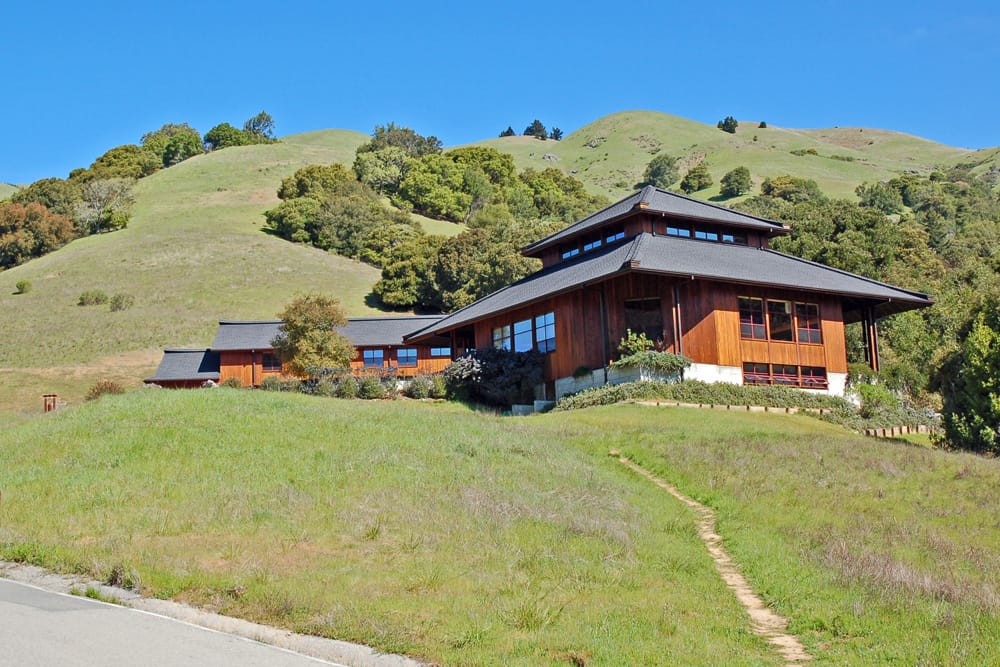

This Fantastic, Unfolding Experiment
“Both at Spirit Rock and at IMS, we want to deepen our realization of liberation, our embodiment of it, and then find ways to communicate the dharma we have inherited through skillful means in this culture.”
Reflecting on the history of the Insight Meditation Society and Spirit Rock Meditation Center, Jack Kornfield describes the challenges and tensions that have accompanied the movement to bring Buddhism to the West and the creative solutions that have emerged to meet them.
Wise Heart: A profile of Jack Kornfield
Jack Kornfield’s brilliant synthesis of deep Buddhist practice and modern psychological insight has made him one of the most influential spiritual teachers of our time. Steve Silberman tells the fascinating story of Kornfield’s voyage — both literal and philosophical — from West to East and back.
Meet a Teacher: Jack Kornfield
“My twin brother and I were born at a Marine base in North Carolina on July 16, 1945—the same day as the first atomic bomb explosion in Alamogordo. My father was a brilliant and abusive scientist, my mother quite open-minded, and I have three great brothers.”






Books by Jack Kornfield
Bringing Home the Dharma: Awakening Right Where You Are
Shambhala Publications
Bringing Home the Dharma is a synthesis of twenty-five years of Kornfield’s writings. The book has a wide scope — everything from parenting to drugs to the nature of enlightenment. “All aspects of your life are your field of practice,” Kornfield says in the introduction. “This very life, your work, your family, your community is the only place for awakening.”
A Lamp in the Darkness: Illuminating the Path Through Difficult Times
Sounds True
A Lamp in the Darkness, which includes a CD, will be especially appealing to readers who are dealing with difficult situations. according to Kornfield, we each have “one who knows,” a witnessing consciousness that is calm, clear, and accepting, even in the face of illness, loss, or depression. the meditations and teachings in A Lamp in the Darkness will help readers begin to trust this life force and thereby trans- form their difficulties.
After the Ecstasy, the Laundry
Bantam Books
According to Jack Kornfield, enlightenment does exist — and it’s actually pretty common. The rub is that after achieving it, day-to-day tasks and troubles still await you. After the Ecstasy, the Laundry is a guide to translating our spiritual awakenings into our imperfect lives, full of personal anecdotes from dedicated practitioners of different faiths.
No Time Like the Present: Finding Freedom, Love, and Joy Right Where You Are
Atria Books
No Time Like the Present is Jack Kornfield’s latest book, offering a call to the world that we don’t have to wait to be happy, and that we can be free at any moment. Kornfield offers a mix of personal anecdotes and portraits of companions that wake us up to the present moment, and includes multiple examples of how to find freedom wherever we’re at in our lives. Each chapter ends with a series of simple practices and meditations to help overcome obstacles and cultivate a sense of freedom and openness. “The most important message I can offer you is this,” writes Kornfield. “You don’t have to wait to be free. You don’t need to postpone being happy.”
The Wise Heart
Bantam Books
The Wise Heart by Jack Kornfield acts as an insightful guide to the universal teachings of Buddhist psychology. Kornfield uses his own Buddhist psychotherapy practice to illuminate the meanings of Buddhist teaches, and explores his own recovery from a difficult childhood. At the end of most chapters, Kornfield suggests specific Buddhist practices for the reader to explore with an open mind. In this book, Kornfield offers visionary and universal perspectives of Buddhism “for the healing of our hearts, the freeing of our minds, and the benefits of all beings.”
